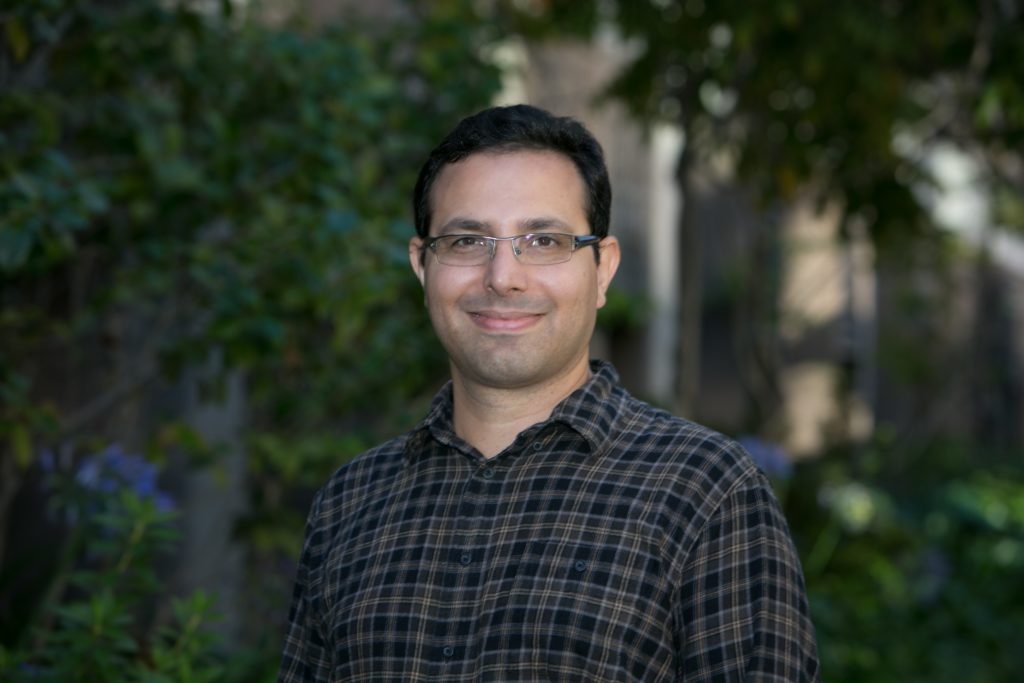Javad Lavaei Joins Berkeley IEOR

IEOR is proud to welcome Javad Lavaei to the faculty this year. Javad’s work in control theory, optimization, and power will be critical to addressing one of the biggest challenges for our future: How can we best meet the power demands for our planet? Currently, most energy is generated from fossil fuels — a limited resource and large contributor to global climate change. Supplanting fossil fuel sources with renewable energy is a big part of the solution, but for Javad, the answer begins with conserving energy by delivering power to consumers more efficiently.
“The main challenge is that supply should be equal to demand. I cannot produce some amount of power and ask the consumer to use half of it,” remarked Javad. Because there is currently no way to store large amounts of energy efficiently, any power generated must immediately be delivered to consumers — or be wasted.
“If I want to use power here, should I buy it from LA or get it from San Francisco? One might be cheaper than the other. The basic idea is — how can we make the grid more efficient, optimized, and reliable — and do it every 5 minutes,” said Javad. By developing advanced optimization techniques combined with domain-specific knowledge in power systems, Javad’s algorithms help efficiently solve large-scale nonlinear resource allocation problems needed to ensure an efficient, reliable and cost-effective way of generating, dispatching and delivering electricity.
Beyond designing algorithms to optimally deliver power, Javad’s work in control theory will be essential to making a renewable energy future possible. In a traditional power system, the supply of power is centralized — coming from a nuclear or coal plant, for example. As adoption of solar panels and wind turbines increase, the power supply becomes more decentralized, which creates new challenges for controlling the delivery of power.
“Having a modest number of solar panels and wind turbines [in the system] is okay because that is not a game changer, but if everyone is using a solar panel, the supply part is very random. And the question is how can we make sure that this is not random — that it is following demand,” said Javad. That supply from renewables is highly variable makes sense. What happens when a cloud suddenly blocks the sun in Berkeley or it’s an especially windy day in Minnesota? Javad’s research in control theory focuses on how the system can adapt to meet demand under these uncertain conditions.
And if these challenges do not sound like enough, there is at least one more for Javad to consider when architecting control systems — security. “If we do some type of control over the internet or communication network… what happens if someone tries to mess with it and tamper with the data? People have different incentives to do this. Some people want to take the grid down, some people might be suppliers that want to manipulate the price. So what kind of algorithm can I use to detect tampering with data and also take action against it?”
In a world increasingly reliant on technology — and the power that drives it — Javad’s work will be indispensible to meeting the energy demands of the future. ■
For more information about Javad, visit ieor.berkeley.edu/people/javad-lavaei/